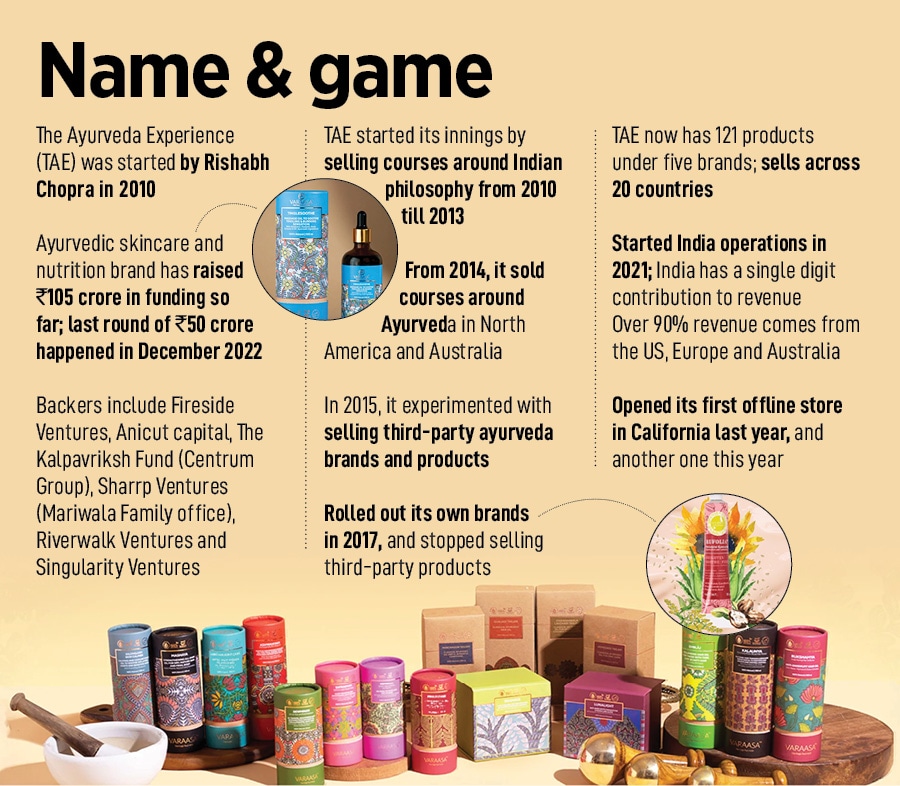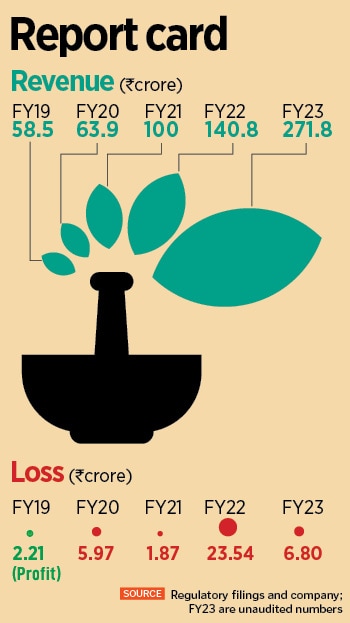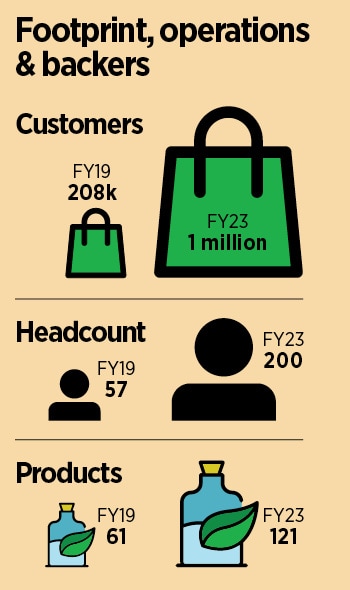“At 23, you get to run a global organisation, and the feeling was surreal," recalls the Delhi boy who headed AIESEC in India for a year, criss-crossed 28 countries in 15 months, and got to see how stalwarts like Adi Godrej and Deepak Parekh—who were on the AIESEC board—worked. “Imagine the experience. It changes your world, outlook and aspirations," he recounts.
The experience, indeed, was changing the world of the young boy. Filled with an exaggerated sense of confidence, Chopra dreamt of conquering the world towards the end of 2008 when he left the organisation after a heady stint of around six years. “I knew nothing could stop me," recalls Chopra, who joined a firm in Malaysia and worked for over 7 months. “They used to sell personal development content to consumers in the US, Europe and Australia," he says. It was an exciting time, and Chopra was preparing himself to embrace a world of endless possibilities. “I gained rich experience," he says.
Experience can be compelling. At least in Chopra’s case, one can say so. If AIESEC expanded the canvas of his possibilities, and a brief stint in Malaysia showed that there was money to be made, a harsh ground reality inserted realism into his grand plans. Chopra’s family business of textile was in shreds: The original debt of Rs 1.5 crore had ballooned to over Rs 4 crore, and the only way to put the house in order was not to continue in a job but to start a business where one could make hefty money. “Financial constraints compelled me to start my venture," he says.
Towards the end of 2009, Chopra dabbled in two businesses. The first traced its roots to his truncated term with the Malaysian company. One of the senior members of the company promised technical support, encouraged Chopra to start an early education programme in India, and ensured that she would arrange the franchisee licence for running the American company’s programme. The prospects were promising, but there was a small problem. Chopra got himself enrolled at Indian School of Business (ISB) for an MBA, and was not in a position to do the business fulltime. So he convinced one of his close friends to leave his job in Singapore, relocate to India and run the education venture till the wannabe founder graduated.
Also read: Plum: On a mission to make positive impact with vegan beauty
The plan was perfect, except for one bewitching twist. The woman who promised to get the licence disappeared. For a few months, she couldn’t be traced. Chopra panicked, borrowed money from friends and went to the US to meet the owners of the institute and fix the issue, and realised that there was no licence arrangement! This was a big learning. “Everything has to be documented, signed and sealed," recounts Chopra, whose new company, Transformative Learning, started with a false alarm. “This experience transformed me," says Chopra, who felt devastated.
He again borrowed from friends and extended family members, compensated his mate who quit his job in Singapore, and continued to focus on another venture, which aimed to create content around Indian philosophy and ideology and selling it in the US and other countries. The startup and MBA course ran side-by-side. “I hustled and kept alive the hope of making it big intact," he says.
![]() Experience can let hope morph into despair. Over the next few years, a chain of distressing events tested the character of the first-time entrepreneur. First was the perennial financial blues. His family was still in debt, the student loan to pursue the MBA got added to the ever-growing expenses list, and the excruciatingly slow pace of venture meant there was no magic wand to immediately fix all the woes. Second, the inexperience of the young founder made him miss his maiden tryst with angels. Chopra was renegotiating close to three dozen terms, and an irritated set of angels backed out. What this meant was more financial trouble. Three friends, two from his school and one from ISB, lent some money, offered respite and bailed him out in 2011.
Experience can let hope morph into despair. Over the next few years, a chain of distressing events tested the character of the first-time entrepreneur. First was the perennial financial blues. His family was still in debt, the student loan to pursue the MBA got added to the ever-growing expenses list, and the excruciatingly slow pace of venture meant there was no magic wand to immediately fix all the woes. Second, the inexperience of the young founder made him miss his maiden tryst with angels. Chopra was renegotiating close to three dozen terms, and an irritated set of angels backed out. What this meant was more financial trouble. Three friends, two from his school and one from ISB, lent some money, offered respite and bailed him out in 2011.
Third, the business was not growing. In FY14, the operating revenue was just Rs 0.51 crore! Fourth, two of the founding members, who also had minor equity in the venture, quit. “It jolted me to the core. It was like a loss of trust vote from my close aides," he recalls. Fifth, Chopra was making a transition from philosophy and ideology to ayurveda. Reason: The founder was still hunting for an elusive scale. With yoga and Indian cuisine making it big in the West, the rookie founder felt that ayurveda too offered a massive opportunity. He was right, but the gambit didn’t move the needle too much. By FY16, revenue was nothing much to write or talk about: Rs 3.64 crore. A few months later, came another gambit. Chopra also started selling third-party ayurveda products on his platform. And this turned out to be a light-bulb moment. Revenues soared, and in FY17 they jumped to Rs 15.59 crore. “The experience of building a venture around ayurveda was paying off," says Chopra.
Experience can indeed be enriching. In 2017, Chopra stopped selling third-party products, and rolled out his own brands under The Ayurveda Experience (TAE). The impact was instant. Revenue more than doubled to Rs 36 crore in FY18. And when it seemed that TAE and Chopra were set to see growth at a brisk pace, came another speed-breaker. “This was more than that. It could have been crippling," says Chopra. In 2018, one of the former employees rolled out lookalike products and started targeting the same set of consumers globally. “It was data theft," he says, adding that the timing was terrible. Chopra had got a term sheet and was about to close a round of funding. Luckily, the investors backed the founder, Chopra filed a suit, and got an injunction.
![]() Fast forward to 2023. TAE closed FY23 with a revenue of Rs 271.8 crore, with a loss of Rs 6.8 crore. The ayurvedic skincare and nutrition brand has so far raised Rs 105 crore, including the last round of Rs 50 crore in December 2022, and counts Fireside Ventures, Anicut Capital, Kalpavriksh Fund (Centrum Group), Sharrp Ventures (Mariwala family office), Riverwalk Holdings and Singularity Ventures among its long list of backers. What, though, is most remarkable is the nature of the business. First, 97 percent of revenue comes from sales on its site. “This makes us truly D2C," says Chopra. Second, over 90 percent of the revenue comes from the US, Europe and Australia. The contribution of India business, which was started in 2021, to the overall revenue pie is under 10 percent.
Fast forward to 2023. TAE closed FY23 with a revenue of Rs 271.8 crore, with a loss of Rs 6.8 crore. The ayurvedic skincare and nutrition brand has so far raised Rs 105 crore, including the last round of Rs 50 crore in December 2022, and counts Fireside Ventures, Anicut Capital, Kalpavriksh Fund (Centrum Group), Sharrp Ventures (Mariwala family office), Riverwalk Holdings and Singularity Ventures among its long list of backers. What, though, is most remarkable is the nature of the business. First, 97 percent of revenue comes from sales on its site. “This makes us truly D2C," says Chopra. Second, over 90 percent of the revenue comes from the US, Europe and Australia. The contribution of India business, which was started in 2021, to the overall revenue pie is under 10 percent.
The backers are elated with the performance. Kanwaljit Singh, founder and managing partner of Fireside Ventures, starts by underlining his belief in the India consumer brand story. “We have always believed that the day is not far when we will see sustainable, global brands being built from India," he reckons. “We strongly believe The Ayurveda Experience can be among the first platforms that fulfils that vision," he says, adding that he met Chopra in 2017. “What struck me was his clarity of purpose about what he was trying to build," he adds. A combination of the best of India, strong focus on products and efficacy, and deep understanding of the dynamics of building a D2C business have helped the venture scale furiously."
![]()
Another backer talks about the ‘house of brands’ approach of TAE. Chopra has rolled out 121 products under five brands, and now sells across 20 countries. “Global trends are in favour of organic, natural, clean and sustainable products, and ayurveda is at the heart of these trends," maintains Ashvin Chadha, managing partner at Anicut Capital. TAE, he lets on, is a one-of-its-kind ayurveda house of brands targeting developed market consumers leveraging India"s heritage and cost advantage. “The company has built powerful moats around sourcing, manufacturing, R&D, claims and trademarks, and enjoys high gross margins and high customer repeats," he adds. The experience of staying relentless in pursuit and being in the game for over a decade is rewarding.
Experience indeed can be rewarding, but at the same time it can be punishing if one doesn’t pay heed to market trends. Branding and marketing analysts reckon that what has helped TAE—its booming global market—might not help the brand in making a mark in India, which is set to be one of the biggest in terms of volume over the next few years. There is indeed big money and margin to be made in the overseas market, underlines Ashita Aggarwal, professor of marketing at SP Jain Institute of Management and Research, but lack of brand awareness and presence in India will hurt in the long run. “They have a good foundation to up the ante in India and take on Forest Essential and Kama," she adds. The company, she adds, also need to reduce its heavy dependence on its flagship brand iYURA, which is around Rs 230 crore in sales.
![]()
Chopra, for his part, points out that TAE is a work-in-progress. “In the premium ayurveda market, we are the second-biggest brand after Forest Essentials," he claims. Our experience, he explains, has made one thing crystal clear: D2C brands have to be built slowly and in a sustainable manner. “The business has to be built profitable," he says, claiming that his global business is profitable. The India play, Chopra reckons, will happen in a staggered manner. “There is no need to rush, and then rue," he says. Ayurveda, Chopra underlines, has to be experienced. “Slow and steady is the name of the game," he signs off.


 Experience can let hope morph into despair. Over the next few years, a chain of distressing events tested the character of the first-time entrepreneur. First was the perennial financial blues. His family was still in debt, the student loan to pursue the MBA got added to the ever-growing expenses list, and the excruciatingly slow pace of venture meant there was no magic wand to immediately fix all the woes. Second, the inexperience of the young founder made him miss his maiden tryst with angels. Chopra was renegotiating close to three dozen terms, and an irritated set of angels backed out. What this meant was more financial trouble. Three friends, two from his school and one from ISB, lent some money, offered respite and bailed him out in 2011.
Experience can let hope morph into despair. Over the next few years, a chain of distressing events tested the character of the first-time entrepreneur. First was the perennial financial blues. His family was still in debt, the student loan to pursue the MBA got added to the ever-growing expenses list, and the excruciatingly slow pace of venture meant there was no magic wand to immediately fix all the woes. Second, the inexperience of the young founder made him miss his maiden tryst with angels. Chopra was renegotiating close to three dozen terms, and an irritated set of angels backed out. What this meant was more financial trouble. Three friends, two from his school and one from ISB, lent some money, offered respite and bailed him out in 2011. Fast forward to 2023. TAE closed FY23 with a revenue of Rs 271.8 crore, with a loss of Rs 6.8 crore. The ayurvedic skincare and nutrition brand has so far raised Rs 105 crore, including the last round of Rs 50 crore in December 2022, and counts Fireside Ventures, Anicut Capital, Kalpavriksh Fund (Centrum Group), Sharrp Ventures (Mariwala family office), Riverwalk Holdings and Singularity Ventures among its long list of backers. What, though, is most remarkable is the nature of the business. First, 97 percent of revenue comes from sales on its site. “This makes us truly D2C," says Chopra. Second, over 90 percent of the revenue comes from the US, Europe and Australia. The contribution of India business, which was started in 2021, to the overall revenue pie is under 10 percent.
Fast forward to 2023. TAE closed FY23 with a revenue of Rs 271.8 crore, with a loss of Rs 6.8 crore. The ayurvedic skincare and nutrition brand has so far raised Rs 105 crore, including the last round of Rs 50 crore in December 2022, and counts Fireside Ventures, Anicut Capital, Kalpavriksh Fund (Centrum Group), Sharrp Ventures (Mariwala family office), Riverwalk Holdings and Singularity Ventures among its long list of backers. What, though, is most remarkable is the nature of the business. First, 97 percent of revenue comes from sales on its site. “This makes us truly D2C," says Chopra. Second, over 90 percent of the revenue comes from the US, Europe and Australia. The contribution of India business, which was started in 2021, to the overall revenue pie is under 10 percent.
